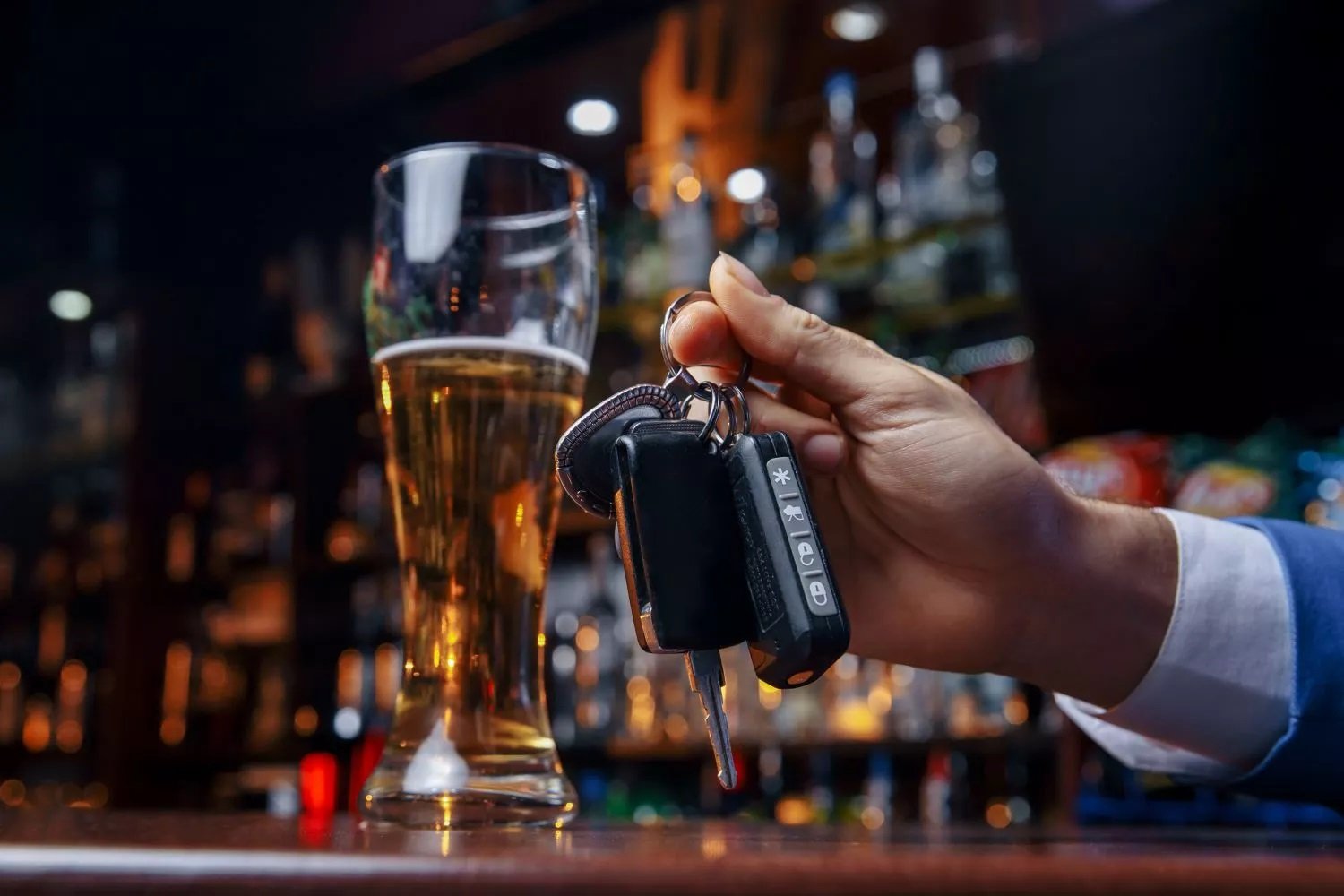The length of time alcohol remains in your system depends on your weight and size, among other factors. Although the effects of alcohol can wear off within several hours, the substance actually stays in your system for much longer. In general, it takes about 1 to 2 hours to metabolize a cocktail and 3 hours to metabolize a glass of wine. In this article, leading addiction rehabilitation specialists, Avenues Recovery will answer all the aspects of the pressing question, ‘How long does alcohol stay in your system?’ - including the factors affecting how long it takes for alcohol to leave your body.
Calculate How Long Alcohol Stays in Your System
Your liver works as quickly as possible to get rid of alcohol. It works on approximately 0.25 to 0.5 ounces per hour. Most standard alcoholic beverages contain between 0.5 and 1 ounce of alcohol. Do the math, and you’ll figure out that it takes about 1 to 2 hours for your body to metabolize a standard drink. If you take a shot, your body will take about an hour or two to fully clear the alcohol from the body. The more you drink, the longer it will take your body to clear all the alcohol.

How Long Does It Take To Sober Up From Beer?
According to the math, it should take your body about 1 to 2.5 hours to fully metabolize a can of beer. A standard beer usually contains about 12 ounces of liquid, with an alcohol content of 5%. This works out to about 0.6 ounces of liquor. Bearing this in mind, you should wait until the can of beer you’ve drunk has fully metabolized before getting behind the wheel.
The alcohol content varies between drinks. It’s important to realize that some bartenders add more alcohol to the drinks, while others add slightly less. In general, it takes about 1 to 2 hours to metabolize a cocktail and 3 hours to metabolize a glass of wine.
Does Alcohol Show Up on a Drug Test for Work?
Yes, alcohol consumption can be detected on some drug tests used for work. Alcohol can be detected for varying lengths of time depending on which part of the body is tested.

Alcohol Metabolism
The body metabolizes alcohol easily. Blood vessels in the stomach absorb 20% of the liquor. This pathway is also known as the first-pass metabolism pathway (FPM pathway). Blood vessels in the small intestine then absorb the rest of the alcohol, or the remaining 80%. The rate of absorption with these pathways can vary. If there’s food in the stomach, the food will absorb some of the alcohol. This disrupts a part of the absorption process, and it takes the liquor longer to enter the bloodstream.
Once the liquor enters the bloodstream, it gets carried to the liver. Enzymes in the liver will break down the alcohol even further. After the alcohol has been metabolized, its metabolites will leave the body, most likely through bodily fluids like sweat, urine, and saliva. So, how long does alcohol stay in your blood? As long as it takes for this process to finish.
Some of the alcohol in the bloodstream will enter the brain. Fortunately, the brain also synthesizes enzymes that break down alcohol. Alcohol molecules attach to receptors in the brain to create a depressive effect on the body. It interrupts and interferes with numerous neurological pathways.

Which Enzymes Break Down Alcohol?
Alcohol is broken down by two main enzymes known as alcohol dehydrogenase and cytochrome P450. Alcohol dehydrogenase is found in the liver, while the brain produces cytochrome P450.
How Does Alcohol Dehydrogenase Break Down Alcohol?
Alcohol dehydrogenase, the enzyme that breaks down alcohol in the liver, binds with alcohol to break it down into a substance known as acetaldehyde. Acetaldehyde is a very reactive substance responsible for the toxic effects of alcohol. It’s responsible for alcoholism and alcohol use disorders (AUDs). Once it’s broken down, acetaldehyde will begin to attack the liver. This is also why many alcoholics suffer from liver disease.
Where Does Cytochrome P450 Break Down Alcohol?
The enzyme cytochrome P450 is found in the brain. It’s another important enzyme that removes alcohol from the body. This metabolic pathway is usually only activated when an excessive amount of alcohol is consumed. Although it can break down alcohol, Cytochrome P450 produces toxic byproducts like superoxide anions and hydroxyethyl molecules, which can damage tissues in the body.

How Different Levels of Blood Alcohol Concentration Make You Feel
Although alcohol may remain in the bloodstream for hours or days, its physical effects wear off faster. The level of Blood Alcohol Concentration (BAC) affects how you feel after imbibing alcohol. Awareness of your blood-alcohol concentration levels can help you determine how and when your symptoms will wear off. Below is a table detailing how you will feel after consuming alcohol, depending on your BAC:
|
Blood Alcohol Concentration (BAC) |
Physical Effects |
|
0.02%-0.039% |
|
|
0.04%-0.059% |
|
|
0.08% (considered drunk in many US states) |
Slightly impaired:
|
|
0.1-0.129% |
Substantially impaired:
Majorly impaired:
|
|
0.13-0.159% |
Complete loss of:
Major loss of:
|
|
0.16-0.199% (considered “sloppy drunk”) |
|
|
0.2-0.249% (considered “wasted”) |
|

Factors Affecting How Long Alcohol Stays in Your Body
Your level of intoxication from a set percentage of alcohol varies according to several factors:
Size: People with a smaller body or lower BMI are more likely to experience the effects of alcohol sooner.
Body water levels: People with higher fluid levels experience a wider distribution of alcohol throughout the body, slowing the rate at which they experience the effects of alcohol.
Age: On average, users under the age of 25 are less likely to have a hangover than those over 25. Older people can become easily intoxicated by an amount of alcohol they were able to absorb easily when they were younger. This is a result of physical changes which occur in our brains as we age.
Sleep: Lack of sleep can cause a user to feel the effects of alcohol sooner.
Hydration: One should always drink water before, during, and after drinking alcohol. This slows the onset of hangover symptoms and may help lessen the effects of a hangover.
Eating while drinking: Drinking alcohol on an empty stomach causes one to experience the effects sooner. When your stomach is empty, there is nothing to absorb the alcohol inside you.
Body fat content:: Body fat can store alcohol and slowly release it into the body.
Ethnicity: The genetic makeup of some ethnicities allows them to metabolize alcohol more efficiently.
Health: The state of your health and whether you take medications affects the speed of alcoholic metabolism. Polydrug use can have a huge effect on alcohol’s metabolic pathways.
Volume: The amount of alcohol consumed will affect the rate at which it’s metabolized. The liver can metabolize liquor at a constant rate. Once the blood alcohol level rises above 0.055, blood and fatty tissues will begin to absorb the extra liquor. The body then stores the alcohol for a much longer period of time.

How Long Does Alcohol Stay In Urine?
Urine tests typically detect alcohol consumed within the last 3 or 4 days.
A urine test uses a urine sample to detect the presence of ethyl glucuronide, a metabolite in alcoholic beverages.
How Long Does Alcohol Stay On Your Breath?
Breathalyzer tests detect alcohol consumed within the last 12-24 hours.
Breathalyzer tests are one of the most common ways of measuring alcohol levels in one’s system. A breathalyzer is a tiny machine used to measure blood-alcohol concentration. Because of its compact size, it is often used by police forces to check for drunk driving.
FAQs
Below are some commonly asked questions about how long alcohol shows up in different parts of your body:
How Long Does Alcohol Stay In Saliva?
Alcohol remains in your saliva for 12-24 hours.
How Long Does Alcohol Stay In Your Hair?
Alcohol stays in your hair for up to 90 days, longer than in any other part of your body.
How Long Does Alcohol Stay In Your Blood?
Alcohol stays in your blood for approximately 6 hours, depending on factors listed above.
What Is the Half-Life of Alcohol?
The half-life of alcohol - the time it takes for half the substance to leave your body - is 4-5 hours.

So, How Long Does Alcohol Stay In Your System?
Ultimately, alcohol will stay in your system as long as one keeps on drinking. If you or a loved one suffer from an addiction or alcohol use disorder, rehabilitation and total recovery are always possible. You can live a meaningful, sober, and focused life with those whom you love most. Contact Avenues Recovery, premier rehabilitation centers, for expert advice on alcohol addiction and treatment options available. Our dedicated professionals are waiting to guide you on your journey home.


